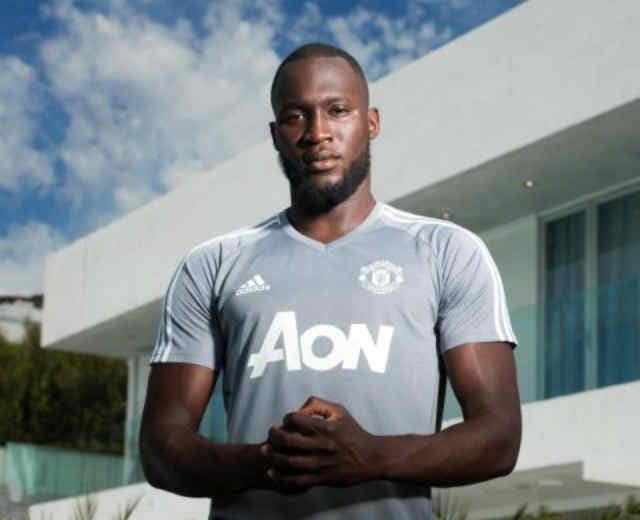 Ole Gunnar Solskjaer is one of the best Manchester United signings ever. Acquired as a little known youngster from Molde for just £1.5 million in the summer of 1996, he went on to become a hugely influential forward — especially when coming off the bench — scoring 126 goals for the club. Thus it is only logical that a new striker from Molde should attract the interest of the Red Devils, especially when one takes into account that he is coached by Solskjaer himself.
Ole Gunnar Solskjaer is one of the best Manchester United signings ever. Acquired as a little known youngster from Molde for just £1.5 million in the summer of 1996, he went on to become a hugely influential forward — especially when coming off the bench — scoring 126 goals for the club. Thus it is only logical that a new striker from Molde should attract the interest of the Red Devils, especially when one takes into account that he is coached by Solskjaer himself.
That is why Manchester United sent a scout to watch Erling Haaland in action with Molde at Brann Bergen in July, during the World Cup. The scout was in for a treat. Brann were unbeaten at the top of the table, but Haaland, who was still 17 at the time, incredibly scored four goals in the first 21 minutes to lead Molde to an emphatic 4-0 win. The fourth was a penalty, but the first three were expertly taken, and reports claimed that United would try to sign the prodigy as fast as possible.
Juventus and Borussia Dortmund were also monitoring the situation closely, but Haaland had other plans. At the beginning of 2019, he will join Red Bull Salzburg after signing a five-year contract with the champions of Austria last Sunday. With the club expected to sell their star striker Moanes Dabour, the Norway Under-19 international should be in line for a lot of playing time, which was the main reason behind his choice. Unwilling to follow in the steps of another promising Norwegian talent Martin Odegaard, who joined Real Madrid too early at the age of 16 and lost his way, Haaland is taking another route entirely.
In fact, he had always valued being on the pitch on weekly basis. Haaland has been followed by scouts ever since making his debut for second-division Bryne at 16. Hoffenheim offered him a trial and wanted him to join their state-of-art academy, but the youngster preferred to go to Molde instead. He wanted to become a professional and continue playing in a senior squad, while getting to work with a legend like Solskjaer was a huge bonus.
The gamble paid off handsomely for all involved, and Solskjaer carefully nurtured his young protege, improving his play and defending him when needed. Last season, Haaland was mostly used as a substitute, which could actually be a compliment as far as the coach is concerned. He duly scored two winners when coming off the bench. After doing so at Viking Stavanger, Bryne’s local rivals, he wildly and provocatively celebrated in front of home fans and was harshly criticised, but Solskjaer was on his side as usual. “Why shouldn’t he do it? He is just a boy who must be allowed to show emotions. It meant a lot to him,” Solskjaer said.
This season, the striker has become Molde’s star. After the four goals at Bergen, the coach claimed: “He is destined to become a top player. He reminds me of Romelu Lukaku.” It is easy to see why such comparisons are made. Very strong physically, Haaland has a huge presence in the penalty area, but possesses a decent touch and good vision as well. He is not just a burly centre-forward, but is also able to produce smart assists. His tactical awareness is phenomenal for such a young player.
Naturally, Solskjaer would love to have sent his favourite pupil to Old Trafford, but that is where their preferences differ. Erling is the son of Alf-Inge and was born in Leeds in July 2000, just before his father moved to Manchester City. Even though Leeds United were relegated from the Premier League when the toddler was two, Haaland Jr. chose to support them, and even claimed: “I dream of winning the title with them.”
The rivalry between Leeds and Manchester United is quite fierce. Perhaps even more significantly, Alf-Inge’s problems with the Red Devils’ legend Roy Keane are well documented — the Irishman infamously admitted in his autobiography that he injured the Norwegian midfielder on purpose. All that means that Erling’s chances of fulfilling Solksjaer’s wish in the future might not be unreachable. He should probably feel much more comfortable following his father’s footsteps at Manchester City — and such a possibility is not out of question if his professional development continues at the current rate.
“Haaland should definitely become a world-class striker,” Dagbladet journalist Oyvind Godo said. “He is strong as a bear and fast as a horse. He is a killer; a goal machine. He has the physics and the end product that Odegaard is missing. The choice of Salzburg is very good, because he is going to be an important player there from the very beginning. It is important to play a lot at his age.”
Support InfoStride News' Credible Journalism: Only credible journalism can guarantee a fair, accountable and transparent society, including democracy and government. It involves a lot of efforts and money. We need your support. Click here to Donate